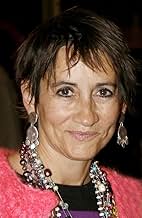CALIFICACIÓN DE IMDb
7.7/10
7.3 k
TU CALIFICACIÓN
El machista Alexandre equilibra las relaciones con varias mujeres, incluida la maternal Marie y la libertina Veronika, en la escena intelectual del París posterior a 1968.El machista Alexandre equilibra las relaciones con varias mujeres, incluida la maternal Marie y la libertina Veronika, en la escena intelectual del París posterior a 1968.El machista Alexandre equilibra las relaciones con varias mujeres, incluida la maternal Marie y la libertina Veronika, en la escena intelectual del París posterior a 1968.
- Dirección
- Guionista
- Elenco
- Premios
- 3 premios ganados y 1 nominación en total
Jean-Claude Biette
- Un homme aux Deux Magots
- (sin créditos)
Jean Douchet
- Un homme au Café de Flore
- (sin créditos)
Bernard Eisenschitz
- Maurice
- (sin créditos)
Jean Eustache
- Le mari de Gilberte
- (sin créditos)
- …
Noël Simsolo
- Un homme au Café de Flore
- (sin créditos)
- Dirección
- Guionista
- Todo el elenco y el equipo
- Producción, taquilla y más en IMDbPro
Opiniones destacadas
10catdoduc
La Maman et la Putain has to be watched as a movie that is both related to the time it was released (post-68) and eternal in many respects. True, the actors don't "act" ... True, they talk a lot... But what they talk about is just what makes life worth living... or dying. The very long monologue spoken by Françoise Lebrun is perhaps the most accurate and moving text that was ever written about womanhood, manhood and love. Not easy to translate accurately, though. This movie is a statement about the difficulty of being a man and a woman (or two women in this case). And IMHO, Jean Pierre Léaud is one of the greatest French actors.
In what could have been seen as a coup towards the sexual "revolution" (purposefully I use quotations for that word), Jean Eustache wrote and directed The Mother and the Whore as a poetic, damning critique of those who can't seem to get enough love. If there is a message to this film- and I'd hope that the message would come only after the fact of what else this Ben-Hur length feature has to offer- it's that in order to love, honestly, there has to be some level of happiness, of real truth. Is it possible to have two lovers? Some can try, but what is the outcome if no one can really have what they really want, or feel they can even express to say what they want?
What is the truth in the relationships that Alexandre (Jean-Pierre Leaud) has with the women around him? He's a twenty-something pseudo-intellectual, not with any seeming job and he lives off of a woman, Marie (Bernadette Lafont) slightly older than him and is usually, if not always, his lover, his last possible love-of-his-life left him, and then right away he picks up a woman he sees on the street, Veronika (Françoise Lebrun), who perhaps reminds him of her. Soon what unfolds is the most subtly torrid love triangle ever put on film, where the psychological strings are pulled with the cruelest words and the slightest of gestures. At first we think it might be all about what will happen to Alexandre, but we're mistaken. The women are so essential to this question of love and sex that they have to be around, talking on and on, for something to sink in.
We're told that part of the sexual revolution, in theory if not entirely in practice (perhaps it was, I can't say having not been alive in the period to see it first-hand), was that freedom led to a lack of inhibitions. But Eustache's point, if not entirely message, is that it's practically impossible to have it both ways: you can't have people love you and expect to get the satisfaction of ultimate companionship that arrives with "f***ing", as the characters refer over and over again.
The Mother and the Whore's strengths as far as having the theme is expressing this dread beneath the promiscuity, the lack of monogamy, while also stimulating the intellect in the talkiest talk you've ever seen in a movie. At the same time we see a character like Alexandre, who probably loves to hear himself talk whether it's about some movie he saw or something bad from his past, Eustache makes it so that the film itself isn't pretentious- though it could appear to be- but that it's about pretentiousness, what lies beneath those who are covering up for their internal flaws, what they need to use when they're ultimately alone in the morning.
If you thought films like Before Sunrise/Sunset were talky relationship flicks, you haven't met this. But as Eustache revels in the dialogs these characters have, sometimes trivial, or 'deep', or sexual, or frank, or occasionally extremely (or in a subdued manner) emotional, it's never, ever uninteresting or boring. On the contrary, for those who can't get enough of a *good* talky film, it's exceptional. While his style doesn't call out to the audaciousness that came with his forerunners in the nouvelle vague a dozen years beforehand, Eustache's new-wave touch is with the characters, and then reverberating on them.
This is realism with a spike of attitude, with things at time scathing and sarcastic, crude and without shame in expression. All three of the actors are so glued to their characters that we can't ever perceive them as 'faking' an emotion or going at all into melodrama. It's almost TOO good in naturalistic/realism terms, but for Eustache's material there is no other way around it. Luckily Leaud delivers the crowning chip of his career of the period, and both ladies, particularly Labrun as the "whore" Veronika (a claim she staggeringly refutes in the film's climax of sorts in one unbroken shot). And, as another touch, every so often, the director will dip into a quiet moment of thought, of a character sitting by themselves, listening to a record, and in contemplation or quiet agony. This is probably the biggest influence on Jim Jarmusch, who dedicated his film Broken Flowers to Eustache and has one scene in particular that is lifted completely (and lovingly) in approach from the late Parisian.
Sad to say, before I saw Broken Flowers, I never heard of Eustache or this film, and procuring it has become quite a challenge (not available on US DVD, and on VHS so rare it took many months of tracking at various libraries). Not a minute of that time was wasted; the Mother and the Whore is truly beautiful work, one of the best of French relationship dramas, maybe even just one of the most staggeringly lucid I've seen from the country in general. It's complex, it's sweet, it's cold, it's absorbing, and it's very long, perhaps too long. It's also satisfying on the kind of level that I'd compare to Scenes from a Marriage; true revelations about the human condition continue to arise 35 years after each film's release.
What is the truth in the relationships that Alexandre (Jean-Pierre Leaud) has with the women around him? He's a twenty-something pseudo-intellectual, not with any seeming job and he lives off of a woman, Marie (Bernadette Lafont) slightly older than him and is usually, if not always, his lover, his last possible love-of-his-life left him, and then right away he picks up a woman he sees on the street, Veronika (Françoise Lebrun), who perhaps reminds him of her. Soon what unfolds is the most subtly torrid love triangle ever put on film, where the psychological strings are pulled with the cruelest words and the slightest of gestures. At first we think it might be all about what will happen to Alexandre, but we're mistaken. The women are so essential to this question of love and sex that they have to be around, talking on and on, for something to sink in.
We're told that part of the sexual revolution, in theory if not entirely in practice (perhaps it was, I can't say having not been alive in the period to see it first-hand), was that freedom led to a lack of inhibitions. But Eustache's point, if not entirely message, is that it's practically impossible to have it both ways: you can't have people love you and expect to get the satisfaction of ultimate companionship that arrives with "f***ing", as the characters refer over and over again.
The Mother and the Whore's strengths as far as having the theme is expressing this dread beneath the promiscuity, the lack of monogamy, while also stimulating the intellect in the talkiest talk you've ever seen in a movie. At the same time we see a character like Alexandre, who probably loves to hear himself talk whether it's about some movie he saw or something bad from his past, Eustache makes it so that the film itself isn't pretentious- though it could appear to be- but that it's about pretentiousness, what lies beneath those who are covering up for their internal flaws, what they need to use when they're ultimately alone in the morning.
If you thought films like Before Sunrise/Sunset were talky relationship flicks, you haven't met this. But as Eustache revels in the dialogs these characters have, sometimes trivial, or 'deep', or sexual, or frank, or occasionally extremely (or in a subdued manner) emotional, it's never, ever uninteresting or boring. On the contrary, for those who can't get enough of a *good* talky film, it's exceptional. While his style doesn't call out to the audaciousness that came with his forerunners in the nouvelle vague a dozen years beforehand, Eustache's new-wave touch is with the characters, and then reverberating on them.
This is realism with a spike of attitude, with things at time scathing and sarcastic, crude and without shame in expression. All three of the actors are so glued to their characters that we can't ever perceive them as 'faking' an emotion or going at all into melodrama. It's almost TOO good in naturalistic/realism terms, but for Eustache's material there is no other way around it. Luckily Leaud delivers the crowning chip of his career of the period, and both ladies, particularly Labrun as the "whore" Veronika (a claim she staggeringly refutes in the film's climax of sorts in one unbroken shot). And, as another touch, every so often, the director will dip into a quiet moment of thought, of a character sitting by themselves, listening to a record, and in contemplation or quiet agony. This is probably the biggest influence on Jim Jarmusch, who dedicated his film Broken Flowers to Eustache and has one scene in particular that is lifted completely (and lovingly) in approach from the late Parisian.
Sad to say, before I saw Broken Flowers, I never heard of Eustache or this film, and procuring it has become quite a challenge (not available on US DVD, and on VHS so rare it took many months of tracking at various libraries). Not a minute of that time was wasted; the Mother and the Whore is truly beautiful work, one of the best of French relationship dramas, maybe even just one of the most staggeringly lucid I've seen from the country in general. It's complex, it's sweet, it's cold, it's absorbing, and it's very long, perhaps too long. It's also satisfying on the kind of level that I'd compare to Scenes from a Marriage; true revelations about the human condition continue to arise 35 years after each film's release.
The movie carries off the daunting challenge set by its extreme length: the first half or so is essentially a comedy of manners, with Leaud's rampant intellectualism constantly tipping over into borderline absurdity (underlined by the deadpan sketches of his friends and their wantonly do-nothing, posturing world; his manipulation of women almost masterful. But the spectrum shifts to show the psychological complexity beneath the 'whore' - in her long final monologue asserting her humanity and then traveling beyond that to assert the aridness of a relationship that doesn¹t generate children: it's as if the posturing were being ripped apart, as if everything was being reanalyzed from the most basic biology. And that reanalysis elevates the women - they both have careers whereas we¹re never sure how he finances himself; their friendship when it comes seems intuitive to an extent that he lacks, so that he's reduced to moping and grasping at opportunities. The final hour or so is an amazing topography of emotional upheaval, discovery and raw pain. An almost brilliant film that expresses the lie of the facile attitudinizing of the times and has an awesome grasp of psychological ambiguity and rawness.
10hasosch
Unfortunately, Jean Eustache (1938-1981) belongs like so many once leading French film makers nowadays to the great unknown ones whose movies are hard to find and are not released on international DVDs. Since we have a good old-fashioned video-store in Tucson, I had the chance to watch this 3 1/2-hour marathon masterwork that is not boring for ten seconds.
Since we speak here about one of the most discussed (and most controversially discussed) movies of all times, let me tell you my impression that the endless dialogs, originally typical for the early "Nouvelle Vague" of a Jacques Rivette or Alain Resnais appear almost ridiculous in this movie. The dialogs are basically monologues, mainly the longest ones spoken by Jean-Pierre Léaud. The most characteristic feature is that the intersections of the speeches of two people is almost zero. Léaud, or his character, Alexandre, pleases to tell more about himself than about the topics he is seemingly to speak. Therefore, one can hardly speak about communication in this movie. It is well possible that the director had a gargantuan satire in mind against the idle running of the once so hotly discussed political and sociological ideas, but the type of man Alexandre exists to all times, we find him already in Petron's "Satiricon", which work has actually great resemblance with "The Mother and the Whore".
Alexandre does not only nothing, but he has developed an own kind of metaphysics about the absence of acting, at least acting in the sense of responsibility toward the society whose part he is. He mocks at the people who run to work at 7 c'clock in the morning, when he is just busy having his last drink before he goes to bed in the apartment of one of his girlfriends from whose money he lives. He is unable to speak one sentence without quoting one of the leading thinkers between Nietzsche and Bernanos. Especially Sartre who is shown quickly in the French intellectual café "Aux Deux Magots", where Alexandre, too, is sitting all day, must serve as excuse for the life-style of Alexandre and his colleagues, because they suffer existential crisis from bourgeois nausea. However, the intellectual speeches of Alexandre seem to be rather pseudo-intellectual, and the sentences and quips he cites seem to come rather from a dictionary of quotations than from his actual reading of the respective books.
It is true: This movie demands an extremely broad European knowledge, especially the connoisseurship of French existentialist philosophy and there consequences to the 68 student revolution movement, but if you have this knowledge, than you will enjoy 215 minutes of your life by staring amazed into the TV and crying out with laughing like you have probably not done it since a long time.
Since we speak here about one of the most discussed (and most controversially discussed) movies of all times, let me tell you my impression that the endless dialogs, originally typical for the early "Nouvelle Vague" of a Jacques Rivette or Alain Resnais appear almost ridiculous in this movie. The dialogs are basically monologues, mainly the longest ones spoken by Jean-Pierre Léaud. The most characteristic feature is that the intersections of the speeches of two people is almost zero. Léaud, or his character, Alexandre, pleases to tell more about himself than about the topics he is seemingly to speak. Therefore, one can hardly speak about communication in this movie. It is well possible that the director had a gargantuan satire in mind against the idle running of the once so hotly discussed political and sociological ideas, but the type of man Alexandre exists to all times, we find him already in Petron's "Satiricon", which work has actually great resemblance with "The Mother and the Whore".
Alexandre does not only nothing, but he has developed an own kind of metaphysics about the absence of acting, at least acting in the sense of responsibility toward the society whose part he is. He mocks at the people who run to work at 7 c'clock in the morning, when he is just busy having his last drink before he goes to bed in the apartment of one of his girlfriends from whose money he lives. He is unable to speak one sentence without quoting one of the leading thinkers between Nietzsche and Bernanos. Especially Sartre who is shown quickly in the French intellectual café "Aux Deux Magots", where Alexandre, too, is sitting all day, must serve as excuse for the life-style of Alexandre and his colleagues, because they suffer existential crisis from bourgeois nausea. However, the intellectual speeches of Alexandre seem to be rather pseudo-intellectual, and the sentences and quips he cites seem to come rather from a dictionary of quotations than from his actual reading of the respective books.
It is true: This movie demands an extremely broad European knowledge, especially the connoisseurship of French existentialist philosophy and there consequences to the 68 student revolution movement, but if you have this knowledge, than you will enjoy 215 minutes of your life by staring amazed into the TV and crying out with laughing like you have probably not done it since a long time.
... is because of films like this.
Don't get me wrong. I like independent cinema, and particularly like good foreign films, but this film could have been cut by at least an hour.
I'll explain.
The film revolves around a self centered young man who professes he loves certain women, but is really looking for someone to love him. Enter a woman who doesn't love herself, but finds this same young man, taps his energy, and both wind up "flowering" for it.
This movie revolves around the sexual morays and politics of a small group of Parisians. The film starts out very strong. Actors present characters in an extended first act that we would like to get to know, but, unfortunately this pic becomes the poster boy for the proverbial "long boring French film" replete with characters who light up cigarettes and talk in either cafés or materially spartan rented rooms about how life should be different, and what it all means. Toss in an Oedipal complex/undercurrent, and you have the quintessential French avante-garde flick.
Huh.
Inspite of this there's some good material in this film, but director Jean Eustache (probably to make up for lack of scheduling and some technical aspects) throws a lot of dialog at the audience that would've have been better served with some visual cues.
All in all it shows how messed up an certain sect of French culture really is, and, perhaps ironically, drives home a realist message regarding the act of coupling.
Technically it's bare bones. Lots of natural lighting is fused with high contrast B&W cinematography, and to add to the rugged feel of the film the scratch track is used. Little to no looping of dialog. You can hear what pros call "room tone" as it was actually recorded during filming.
I could go off the deep end and call this film self-indulgent, pretentious et al, but will say instead that the exposition given to the story was "over-exposed" (for lack of a better term). The symbolism is fine, but a lack of visuals and a borderline in-you-face delivery of certain dialog, hampers what could have been a much better film. By that I don't mean commercially successful nor accessible, but a film that could have delivered the same gists, character and message without the flaunting its strive for artistic excellence.
Don't get me wrong. I like independent cinema, and particularly like good foreign films, but this film could have been cut by at least an hour.
I'll explain.
The film revolves around a self centered young man who professes he loves certain women, but is really looking for someone to love him. Enter a woman who doesn't love herself, but finds this same young man, taps his energy, and both wind up "flowering" for it.
This movie revolves around the sexual morays and politics of a small group of Parisians. The film starts out very strong. Actors present characters in an extended first act that we would like to get to know, but, unfortunately this pic becomes the poster boy for the proverbial "long boring French film" replete with characters who light up cigarettes and talk in either cafés or materially spartan rented rooms about how life should be different, and what it all means. Toss in an Oedipal complex/undercurrent, and you have the quintessential French avante-garde flick.
Huh.
Inspite of this there's some good material in this film, but director Jean Eustache (probably to make up for lack of scheduling and some technical aspects) throws a lot of dialog at the audience that would've have been better served with some visual cues.
All in all it shows how messed up an certain sect of French culture really is, and, perhaps ironically, drives home a realist message regarding the act of coupling.
Technically it's bare bones. Lots of natural lighting is fused with high contrast B&W cinematography, and to add to the rugged feel of the film the scratch track is used. Little to no looping of dialog. You can hear what pros call "room tone" as it was actually recorded during filming.
I could go off the deep end and call this film self-indulgent, pretentious et al, but will say instead that the exposition given to the story was "over-exposed" (for lack of a better term). The symbolism is fine, but a lack of visuals and a borderline in-you-face delivery of certain dialog, hampers what could have been a much better film. By that I don't mean commercially successful nor accessible, but a film that could have delivered the same gists, character and message without the flaunting its strive for artistic excellence.
¿Sabías que…?
- TriviaThis film is based on the real-life relationship between director Jean Eustache and actress Francoise Lebrun (who plays Veronika). The character based on her is named Gilberte in the movie and is played by Isabelle Weingarten.
- ErroresAlexandre can be seen drinking a bottle of 1970 Gevrey-Chambertin, which would have been far too expensive for him to have purchased. This error is illuminated by his notable lack of money during the cafe scene, in which his date pays for his bill.
- ConexionesFeatured in La historia del cine: Una odisea: European New Wave (2011)
- Bandas sonorasIch weiß, es wird einmal ein Wunder gescheh'n
Written by Bruno Balz, Michael Jary and Ralph Benatzky
Performed by Zarah Leander
Selecciones populares
Inicia sesión para calificar y agrega a la lista de videos para obtener recomendaciones personalizadas
- How long is The Mother and the Whore?Con tecnología de Alexa
Detalles
- Fecha de lanzamiento
- País de origen
- Sitios oficiales
- Idioma
- También se conoce como
- The Mother and the Whore
- Locaciones de filmación
- Café Les Deux Magots - 6 place Saint-Germain-des-Prés, Paris 6, París, Francia(Alexandre's usual café)
- Productoras
- Ver más créditos de la compañía en IMDbPro
Taquilla
- Total en EE. UU. y Canadá
- USD 40,555
- Fin de semana de estreno en EE. UU. y Canadá
- USD 5,135
- 25 jun 2023
- Total a nivel mundial
- USD 47,344
- Tiempo de ejecución3 horas 37 minutos
- Color
- Mezcla de sonido
- Relación de aspecto
- 1.37 : 1
Contribuir a esta página
Sugiere una edición o agrega el contenido que falta

Principales brechas de datos
What was the official certification given to La maman et la putain (1973) in Japan?
Responda




































